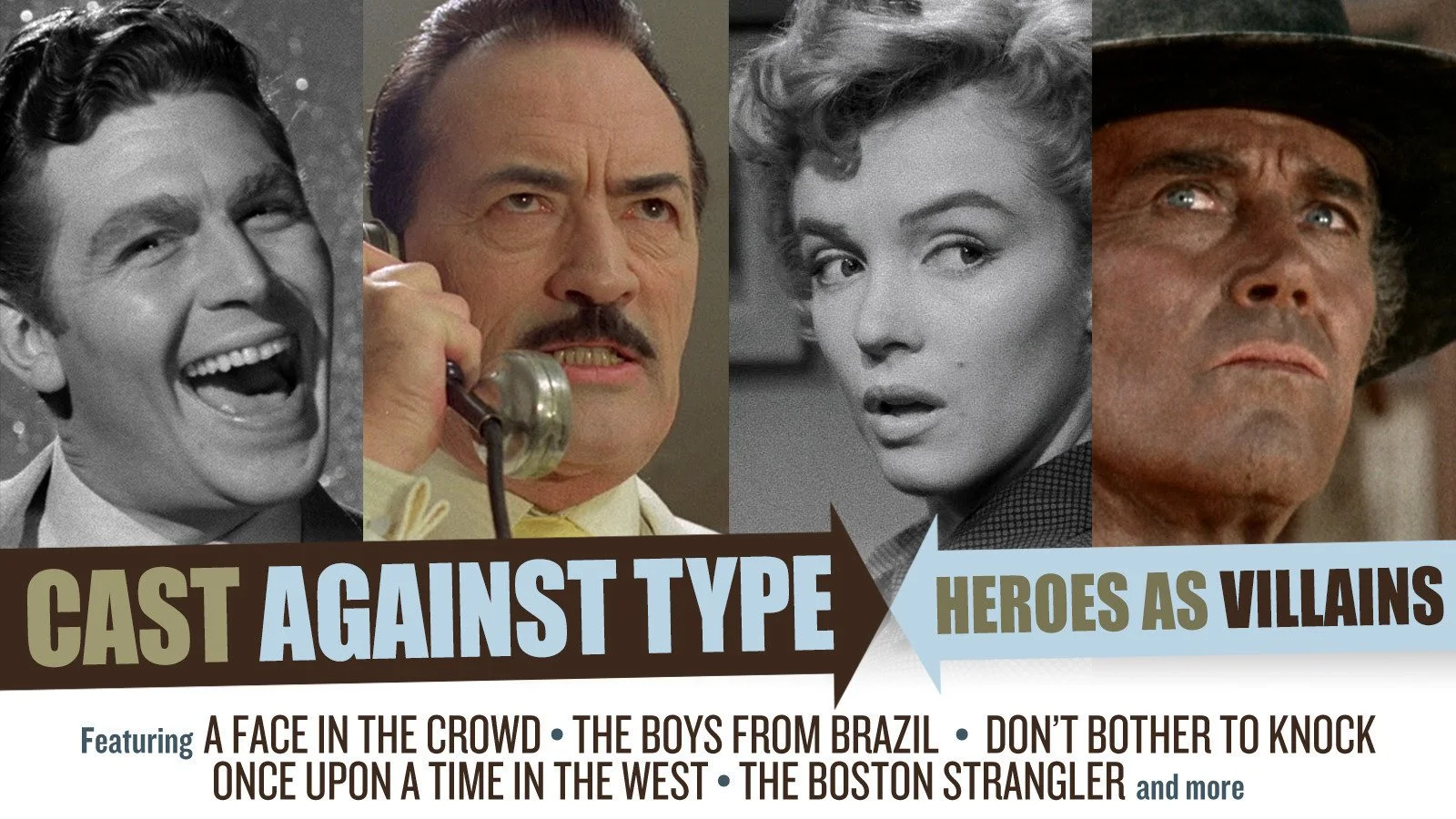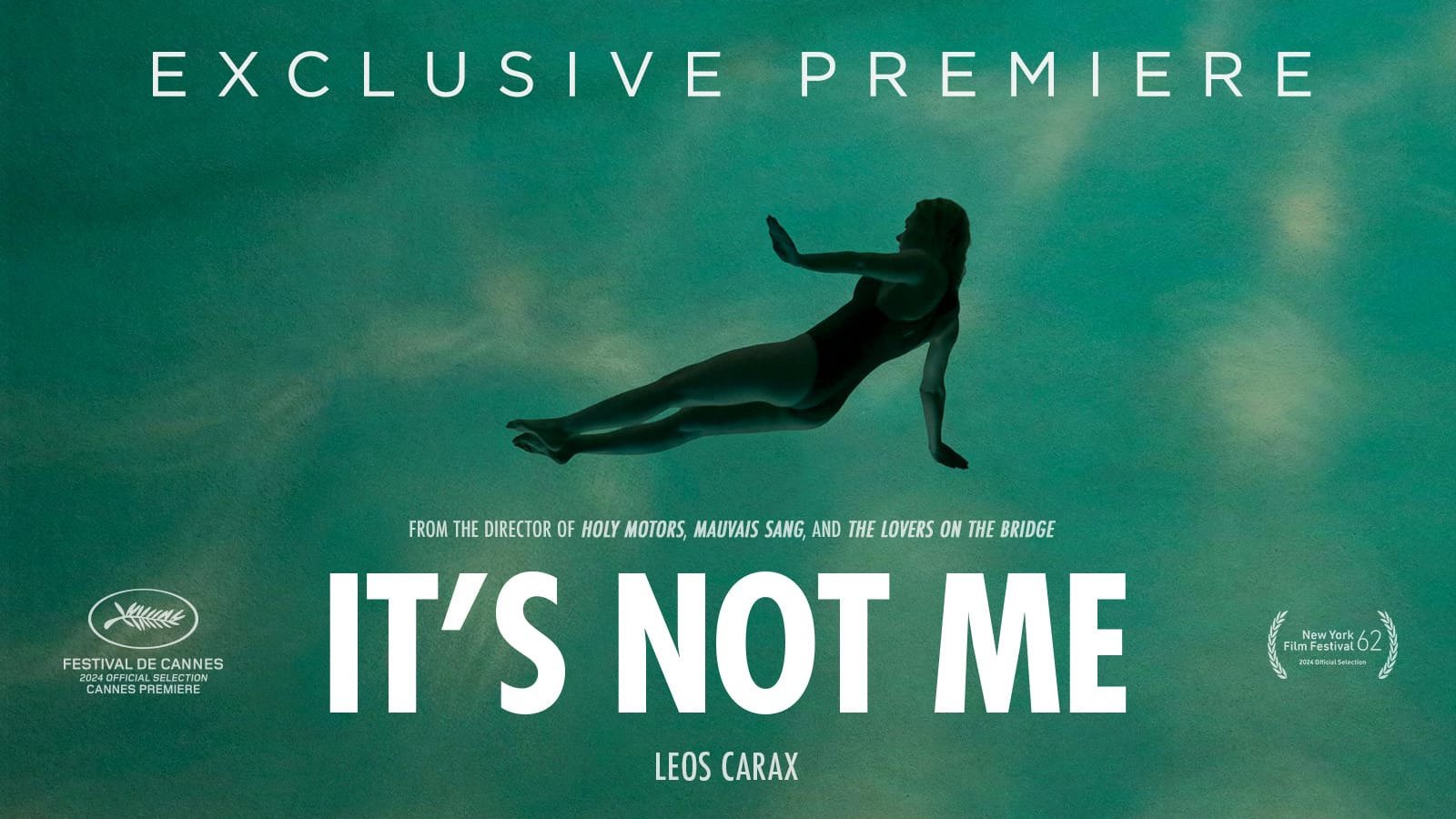Here’s What’s Coming to The Criterion Channel in January 2025
The Criterion Channel has announced their January 2025 lineup, and it includes collections featuring Nicole Kidman, David Bowie, Ethan Hawke, and early work by awards contenders Sean Baker, RaMell Ross, and Brady Corbet.
If you haven’t signed up yet, head to CriterionChannel.com and get a 7-day free trial.
* indicates programming available only in the U.S.
Here’s the full breakdown:
TOP STORIES
Surveillance Cinema
In a world where anyone might, at any moment, be spied on, who can you trust? It’s a fear that cinema, with its inherently voyeuristic nature, taps into with particular potency. Exploring concerns around the erosion of personal privacy, state surveillance, and corporate overreach, these films—which encompass everything from classic conspiracy thrillers (The Anderson Tapes, The Conversation) to science-fiction mind-benders (Gattaca, Minority Report) to sly meta-commentaries on the media itself (Body Double, The Truman Show)—play upon both our paranoia of being watched and the pleasures of watching.
FEATURING: Modern Times (1936), The Anderson Tapes (1971), THX 1138 (1971), The Conversation (1974), Camera Buff (1979), Death Watch (1980), Body Double (1984), Sliver (1993)*, Gattaca (1997), The End of Violence (1997), The Truman Show (1998)*, Demonlover (2002), Minority Report (2002)*, The Lives of Others (2006)*, A Scanner Darkly (2006)
Starring Nicole Kidman
One of the major screen artists of our time, Nicole Kidman combines movie-star magnetism with the transformational performance style of a dedicated character actor. Whether revealing the sociopathy behind the mask of suburban “normalcy” in Gus Van Sant’s To Die For, turning her own marriage to Tom Cruise inside-out in Stanley Kubrick’s dream-state erotic odyssey Eyes Wide Shut, or fearlessly exploring the ultimate taboo in Jonathan Glazer’s provocative psychological mystery Birth, she brings layers of nuance, complexity, and conflicting emotion to every risk-taking performance while maintaining a sense of enigmatic unknowability that makes her endlessly fascinating to watch.
FEATURING: Dead Calm (1989), To Die For (1995), The Portrait of a Lady (1996), Eyes Wide Shut (1999), The Hours (2002)*, Birth (2004), The Stepford Wives (2004)*, Margot at the Wedding (2007), The Paperboy (2012)*
Three by Cameron Crowe
A precocious journalist turned wunderkind filmmaker, Cameron Crowe broke through in the 1980s and ’90s with a series of warm, bittersweet stories that gravitate around young love and music. This trio of films—the definitive Gen X romances Say Anything . . . and Singles and the semi-autobiographical rock odyssey Almost Famous—exemplify the spirit of youthful optimism, self-discovery, and yearning for authentic connection at the heart of his work, buoyed by the ecstatic soundtracks that underscore its emotional impact.
FEATURING: Say Anything . . . (1989), Singles (1992), Almost Famous (2000)*
Love in Disguise
All’s fair in love—including a bit of deception, as seen in these glittering comedies of impersonation, trickery, and mistaken identity. An integral element of the romantic-comedy formula since the time of Shakespeare and Molière, the masquerade finds characters faking their names, class, gender, nationality, and more, with the ensuing confusion all part of the fun. Sparkling with champagne-fizzy repartee and dizzy screwball antics, these classic Hollywood gems from masters like Frank Borzage (Desire), Mitchell Leisen (Midnight), and Preston Sturges (The Lady Eve) beg the question: is love really just an elaborate con game?
FEATURING: Monte Carlo (1930), Love Me Tonight (1932), This Is the Night (1932), Thirty Day Princess (1934)*, Desire (1936)*, The Princess Comes Across (1936)*, Midnight (1939), The Flame of New Orleans (1941)*, The Lady Eve (1941), The Major and the Minor (1942)*, Frenchman’s Creek (1944)*
Cast Against Type: Heroes as Villains
When actors otherwise known for their wholesome, likable, and appealing images play against type as villains, the results can be riveting—subverting narrative expectations, challenging audience identification, and revealing novel dimensions of a performer we thought we knew. Whether it’s Andy Griffith as a television star turned monstrous, power-hungry demagogue (A Face in the Crowd); Marilyn Monroe as a dangerously psychotic babysitter (Don’t Bother to Knock); or even ultimate good guy Henry Fonda as a sociopathic, child-murdering gunslinger (Once Upon a Time in the West), there’s an undeniable, almost transgressive thrill in seeing some of our most beloved actors embrace their dark sides.
FEATURING: Night Must Fall (1937), In Name Only (1939), The Velvet Touch (1948), Red River (1948), Don’t Bother to Knock (1952), Angel Face (1953), A Face in the Crowd (1957), The Killers (1964), The Boston Strangler (1968), Once Upon a Time in the West (1968), The Boys from Brazil (1978)
David Bowie Changes
As a chameleon who continually reinvented his musical persona, David Bowie was a natural actor who lent his singular yet slippery presence to a number of carefully chosen, always surprising film projects. While his first major screen role in Nicolas Roeg’s hallucinatory science-fiction epic The Man Who Fell to Earth capitalized on his inherently alien androgyny, Bowie continued to prove a versatile, charismatic performer in films as diverse as Nagisa Oshima’s homoerotic war drama Merry Christmas Mr. Lawrence and the delightfully daft indie screwball The Linguini Incident.
FEATURING: The Man Who Fell to Earth (1976), Merry Christmas Mr. Lawrence (1983), The Linguini Incident (1991), Twin Peaks: Fire Walk With Me (1992), Basquiat (1996)
CRITERION ORIGINALS
The Craft of Acting: Ethan Hawke
A consummate artist, Ethan Hawke brings deep intelligence and passion to every project as an actor, writer, and director, revealing a serious, soul-searching intellect. In this first installment of a new series that invites acclaimed actors to reflect on their craft, Hawke sits down with Isaac Butler, author of The Method: How the Twentieth Century Learned to Act, to discuss both his own work and the actors who inspire him. Delving into what it took to achieve the radical naturalism of The Before Trilogy, the experience of directing other actors in his new film Wildcat, and why Jack Nicholson’s performance in One Flew over the Cuckoo’s Nest is one of the greatest of all time, Hawke offers his unique insights into the art that he has pursued for four decades.
FEATURING: One Flew over the Cuckoo’s Nest (1975), Before Midnight (2013)*
PREMIERING IN A LIVE EVENT IN MID-JANUARY: Wildcat (2023)*
EXCLUSIVE PREMIERES
It’s Not Me
Featuring a new interview with director Leos Carax, part of Criterion’s Meet the Filmmakers series
French-cinema firebrand Leos Carax has spent forty years making galvanizing movies that float in the beautifully perplexing nether space between reality and artifice, from Boy Meets Girl and The Lovers on the Bridge to Holy Motors and the recent musical Annette. In his new film, he lovingly evokes the aesthetics of Jean-Luc Godard, paying aptly cheeky respect to the late New Wave master, his own career, and cinema itself, rummaging through a century of movies to situate his work within a continuum of the medium. Rather than self-aggrandize, he uses this diaristic format for an iconoclastic and impudent inquiry into power, politics, and image-making that is at once wry and playful, oblique and deeply personal.
(Synopsis courtesy of New York Film Festival)
CRITERION COLLECTION EDITIONS
Take Out (Sean Baker and Shih-Ching Tsou, 2004)
Criterion Collection Edition #1149
Sean Baker and Shih-Ching Tsou’s raw immersion into the life of an undocumented Chinese immigrant struggling to get by on the margins of post-9/11 New York City unfolds as a kind of neorealist survival thriller of the everyday.
SUPPLEMENTAL FEATURES: Audio commentary by Baker, Tsou, and actor Charles Jang; interviews with the directors and cast; a program on the making of the film; and more.
To Die For (Gus Van Sant, 1995)
Criterion Collection Edition #1213
Nicole Kidman delivers a diabolical deconstruction of the girl next door in Gus Van Sant’s deliciously subversive portrait of suburban sociopathy.
SUPPLEMENTAL FEATURES: Audio commentary by Van Sant, director of photography Eric Alan Edwards, and editor Curtiss Clayton and deleted scenes.
A Face in the Crowd (Elia Kazan, 1957)
Criterion Collection Edition #970
Andy Griffith goes from folksy television star to monstrous, power-crazed demagogue in Elia Kazan’s eerily prescient satire of the toxic intimacy between media and politics in American life.
SUPPLEMENTAL FEATURES: Interviews with authors Ron Briley and Evan Dalton and a documentary featuring Griffith, actors Patricia Neal and Anthony Franciosa, screenwriter Budd Schulberg, and film scholars Leo Braudy and Jeff Young.
Hunger (Steve McQueen, 2008)
Criterion Collection Edition #504
Director Steve McQueen (Blitz) and star Michael Fassbender turn one of history’s most controversial acts of political defiance into a jarring, unforgettable cinematic experience full of both beauty and horror.
SUPPLEMENTAL FEATURES: Interviews with McQueen and Fassbender, a documentary on the making of the film, and a BBC program about the Maze prison hunger strikes.
Still Walking (Hirokazu Kore-eda, 2008)*
Criterion Collection Edition #554
Hirokazu Kore-eda’s lyrical, profoundly moving day-in-the-life drama locates the small joys and deep regrets that underpin a family’s domestic routines.
SUPPLEMENTAL FEATURES: A documentary on the making of the film and interviews with Kore-eda and cinematographer Yutaka Yamazaki.
REDISCOVERIES AND RESTORATIONS
Les misérables
Hailed by film critics around the world as the greatest screen adaptation of Victor Hugo’s mammoth nineteenth-century novel, Raymond Bernard’s dazzling, nearly five-hour Les misérables is a breathtaking tour de force, unfolding with the depth and detail of its source. Featuring stunning art direction and cinematography and unforgettable performances by the exquisite Harry Baur (who died tragically during World War II) as Jean Valjean and the legendary Charles Vanel as Inspector Javert, Les misérables is one of the triumphs of French filmmaking.
Pathfinder
The first feature-length film in the Sámi language (spoken by the Indigenous people of Scandinavia) is a thrilling blend of coming-of-age tale and epic adventure set against the stark, snowy beauty of Norway’s far north. Based on an ancient Sámi legend, Pathfinder unfolds around the year 1000, when brutal invaders known as the Chudes roam northern Scandinavia. After he witnesses the murder of his family at the hands of the Chudes, Sámi teenager Aigin (Mikkel Gaup) is taken captive and forced to act as their guide. As he leads his captors on a dangerous trek across the frozen tundra, Aigin must think quickly to save his people and exact his revenge.
Record of a Tenement Gentleman
Yasujiro Ozu’s first post–World War II film takes place in an impoverished Tokyo neighborhood that has been partly destroyed in bombing raids. Here, a hard-hearted middle-aged widow (Choko Iida) reluctantly takes in a child (Hohi Aoki) abandoned by his father. Bitter at first, she soon finds herself growing fond of the boy. Ozu’s delicate, humorous, and unsentimental story of redemption is the director’s expression of a country slowly coming out of the dark.
DIRECTOR SPOTLIGHTS
Three by Sean Baker
As his latest film, the Palme d’Or–winning Anora, continues to garner acclaim, we’re revisiting the early work of Sean Baker, who for more than twenty years has carved out a distinctive place within American independent cinema exploring the lives of characters on the margins of society with a combination of vérité naturalism and kinetic stylistic verve. Deeply compassionate, human portraits of immigrants (Take Out) and sex workers (Starlet) chasing their versions of the American dream, these defiantly DIY transmissions from way outside the Hollywood formula factory show one of our most vital auteurs already in command of his craft.
FEATURING: Take Out (2004), Prince of Broadway (2008), Starlet (2012)
Ethan Hawke Directs
Ethan Hawke’s uniquely personal work as a director reflects his restlessly curious mind, deep engagement with music and literature, and iconoclastic approach to the biopic form. From a wonderfully warm documentary portrait of an octogenarian classical pianist (Seymour) to a boldly unconventional biography of a hard-living country music legend (Blaze) to a vivid journey into the mind of writer Flannery O’Connor (Wildcat), Hawke offers bracing insights into the mysteries of creativity and the passionate struggle of lives lived fully and uncompromisingly in the name of art.
FEATURING: Seymour: An Introduction (2014)*, Blaze (2018)
PREMIERING IN A LIVE EVENT IN MID-JANUARY: Wildcat (2023)*
Three by Paolo Sorrentino
Extravagant, dazzlingly stylish visions of decadence and decay, the films of Italian auteur Paolo Sorrentino train a cunning eye on the worlds of wealth, celebrity, and power to reveal the moral rot lurking below their seductively glittering surfaces. All made in collaboration with his regular leading man Toni Servillo, who perfectly embodies the charm, vanity, and soul-sick emptiness of corrupt men, these opulently operatic spectacles—including the sprawling, AcademyAward–winning The Great Beauty—mark the filmmaker as heir to Fellini’s cinema of grandiose melancholy and cutting social observation.
FEATURING: One Man Up (2001), The Consequences of Love (2004), The Great Beauty (2013)
BLACK LIVES
100 Years of Paulin Soumanou Vieyra
Overlooked for too long, Paulin Soumanou Vieyra (1925–1987) should be seen as one of the most important and influential figures in the development of African cinema. Born 100 years ago in Benin and later based in Senegal, Vieyra was one of the first Black Africans to direct a film, Africa on the Seine, a moving and thoughtful documentary about young Africans studying inParis. His later works included Lamb, a revelatory and stirring study of beachside Senegalese wrestling; Birago Diop, conteur, about the eponymous poet and storyteller; and Behind the Scenes: The Making of “Ceddo,” a firsthand document from the set of Ousmane Sembène’s revolutionary classic. In addition to his filmmaking, Vieyra was founder of the Fédération Panafricaine des Cinéastes and a crucial mentor to key filmmaking figures like Sembène, Djibril Diop Mambéty, and Ababacar Samb-Makharam.
Special thanks: Black Film Center & Archive of Indiana University and African Film Festival, Inc.
FEATURING: Africa on the Seine (1955), A Nation Is Born (1961), Lamb (1964), Môl (1966), Birago Diop, conteur (1981), Behind the Scenes: The Making of “Ceddo” (1981), Iba N’Diaye (1982)
AMERICAN INDEPENDENTS
Hale County This Morning, This Evening
This lyrical documentary by RaMell Ross (Nickel Boys) charts two young Alabama men’s divergent paths into adulthood while reflecting on—and thinking beyond—the ways that African American life in the South has been represented on-screen.
The Childhood of a Leader
A child’s angelic face conceals a budding sociopath in the audacious, senses-shattering feature debut from The Brutalist director Brady Corbet.



















